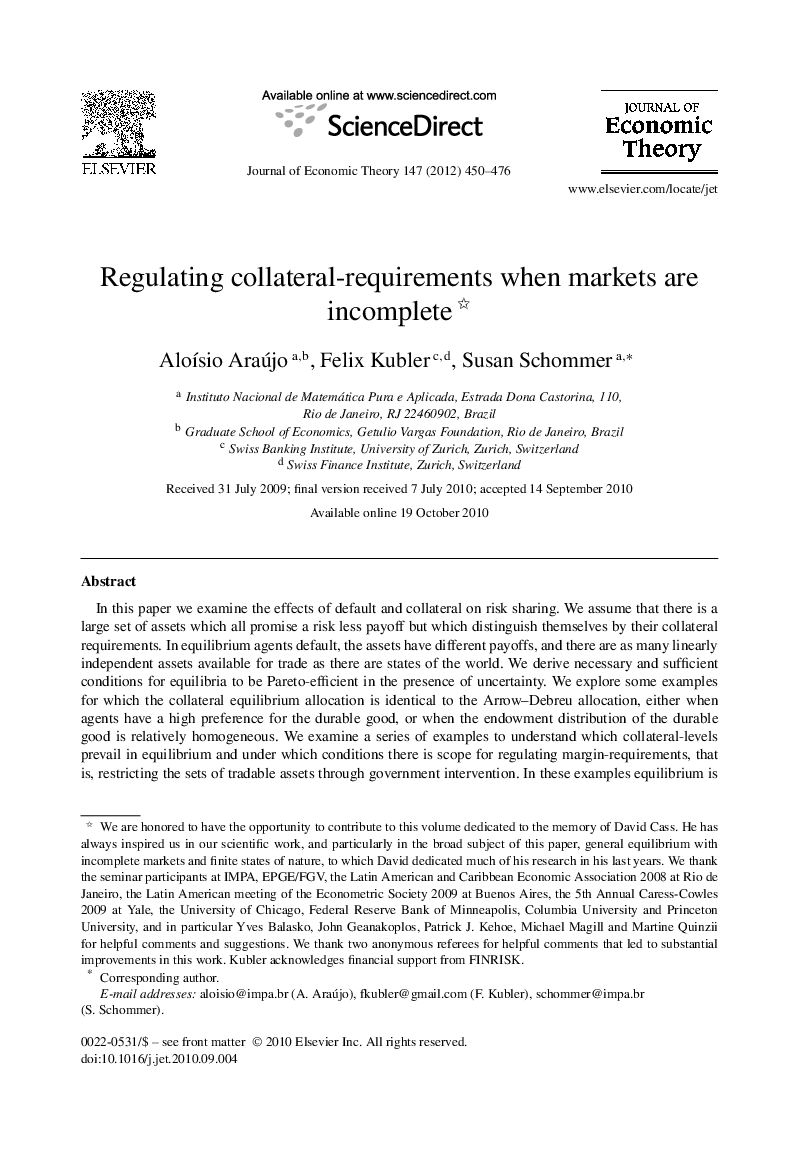| Article ID | Journal | Published Year | Pages | File Type |
|---|---|---|---|---|
| 956893 | Journal of Economic Theory | 2012 | 27 Pages |
In this paper we examine the effects of default and collateral on risk sharing. We assume that there is a large set of assets which all promise a risk less payoff but which distinguish themselves by their collateral requirements. In equilibrium agents default, the assets have different payoffs, and there are as many linearly independent assets available for trade as there are states of the world. We derive necessary and sufficient conditions for equilibria to be Pareto-efficient in the presence of uncertainty. We explore some examples for which the collateral equilibrium allocation is identical to the Arrow–Debreu allocation, either when agents have a high preference for the durable good, or when the endowment distribution of the durable good is relatively homogeneous. We examine a series of examples to understand which collateral-levels prevail in equilibrium and under which conditions there is scope for regulating margin-requirements, that is, restricting the sets of tradable assets through government intervention. In these examples equilibrium is always sub-optimal but regulation never leads to a Pareto-improvement. While the competitive equilibria are constrained efficient, there do exist regulations which make large groups of agents in the economy better off. These regulations typically restrict all trades to take place in the low-collateral loans and benefit the poor and the rich agents in the economy through their effects on the equilibrium interest rate and the equilibrium prices of the durable goods.
